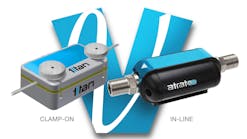ABSOLUTE PRESSURE: The difference between zero pressure (a perfect vacuum) and some known pressure. It may be arrived at by adding barometric pressure to gauge pressure.
ACCURACY: Accuracy is the maximum allowable set-point deviation of a single pressure switch under one given set of environmental and operational conditions.
ACTUATION POINT: Sometimes called set point, it is the exact point at which the electrical circuit controlled by the switching element is opened (or closed) on increasing pressure.
ADJUSTABLE RANGE: The total range within which the actuation point (set point) of a pressure or vacuum switch may be adjusted.
AMBIENT PRESSURE: The pressure (usually but not necessarily atmospheric) surrounding a pressure switch.
CHARGE: The fluid with which the temperature-sensing probe is filled.
CRITICAL SET POINT: The critical set point is the set point of the unit that is held to the closest tolerance. It can be either the actuation (increasing) or deactuation (decreasing) point.
DEADBAND: The difference between the actuation point and the deactuation point. For instance, if a pressure switch reaches its actuation point and closes the snap action switch at 100 PSI, it is in an actuated condition. If the pressure then drops and the switch deactuates (returns to its normal condition) at 90 PSI, it is said to have a deadband of 10 PSI.
DUAL SETTING: A dual setting pressure sensor has two independently adjustable electrical switches that are actuated by a shared pressure source. Equivalent to two field-adjustable pressure switches in one package.
FACTORY SET: Tamper-proof sensor that can be set only at the factory to customer”s requirements.
NORMALLY CLOSED: A switching element in which the terminals are wired so that current can flow through until the plunger pin is actuated to open the electrical circuit.
NORMALLY OPEN: A switch in which the terminals are wired so that no current can flow through the switching element until the plunger pin is actuated to close the circuit.
POLYIMIDE: A polymeric film possessing a unique combination of physical and mechanical properties which include long life, excellent deformation/set resistance, high actuation point, resistance to temperature extremes, good tensile strength, and outstanding resistance to organic compounds. Polyimide is not recommended for water service above 14O F (60 C).
The terms and definitions for this issue’s Word Search come from a glossary of terms compiled by Custom Control Sensors (www.ccsdualsnap.com), a manufacturer of adjustable standard and custom pressure and temperature switches for the industrial and aerospace markets.

